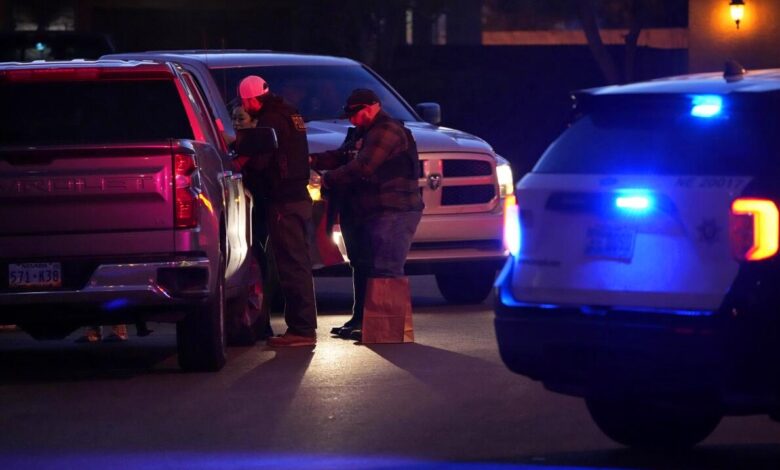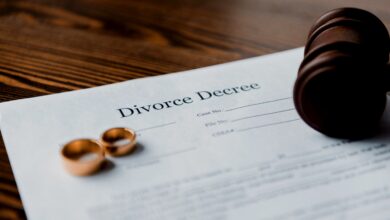If You’re Arrested in Nevada What to Expect
In this comprehensive 2025 guide, we’ll walk you through everything you need to know about getting arrested in Nevada—from your initial arrest and booking to court proceedings

Facing arrest is one of the most stressful and life-altering experiences a person can encounter. If you or someone you love is arrested in Nevada, it’s crucial to understand your rights, what to expect during the legal process, and how to navigate the system to protect your freedom and future. Whether it’s a misdemeanor, DUI, drug possession, or a more serious felony charge, knowing the steps ahead can make a significant difference.
In this comprehensive 2025 guide, we’ll walk you through everything you need to know about getting arrested in Nevada—from your initial arrest and booking to court proceedings, potential penalties, and securing legal representation.
Understanding the Arrest Process in Nevada
What Happens During an Arrest?
If you’re arrested in Nevada, the process typically begins when a law enforcement officer has probable cause to believe you’ve committed a crime or has a valid warrant for your arrest. You may be stopped in public, at home, or during a traffic incident. In some cases, arrests are made on the spot, such as during a DUI checkpoint or domestic disturbance call.
Once arrested, the officer must:
- Inform you of the reason for the arrest
- Read your Miranda rights (“You have the right to remain silent…”)
- Take you into custody and transport you to a local detention facility
Booking and Processing
After being taken into custody, you’ll be transported to a jail or detention center, where you’ll go through the booking process. This includes:
- Fingerprinting
- Photographing (mugshot)
- Personal information entry into the police database
- Confiscation and cataloging of personal property
Depending on the jurisdiction (e.g., Las Vegas Metropolitan Police Department), you may be held in facilities like Clark County Detention Center.
Bail and Release Options
Will You Be Granted Bail?
If you’re arrested in Nevada, bail is a common method to secure temporary release before trial. Bail is a financial guarantee that you’ll appear at future court dates. The judge considers several factors before setting bail:
- Nature of the alleged crime
- Past criminal history
- Flight risk
- Community ties
In less severe cases, you may be released on your own recognizance (O.R.), meaning no bail is required, only a promise to appear in court.
Bail Bonds in Nevada
If you can’t afford full bail, a bail bondsman can post bail on your behalf for a fee (usually 15% of the bail amount in Nevada). If you fail to appear in court, the bondsman has the right to locate and return you to custody.
Initial Court Appearance (Arraignment)
Within 72 hours of your arrest (excluding weekends/holidays), you’ll attend an arraignment. Here, the court will:
- Inform you of the charges
- Advise you of your rights
- Ask how you wish to plead: guilty, not guilty, or no contest
- Address bail again (if applicable)
It’s essential to have a criminal defense attorney represent you during this stage, especially if the charges are serious. Legal representation can help negotiate bail terms or request a reduction.
Legal Rights After Being Arrested in Nevada
Understanding your rights post-arrest is critical to avoid self-incrimination or procedural errors.
Key Rights Include:
- Right to remain silent (Don’t talk to police without a lawyer)
- Right to an attorney (If you can’t afford one, a public defender will be assigned)
- Right to a fair and speedy trial
- Right to know the charges against you
Nevada law also upholds your rights under Fourth Amendment protections, meaning law enforcement must have a valid warrant or probable cause for searches or seizures.
Common Criminal Charges in Nevada
Depending on your actions and the location of your arrest, you may face a range of criminal charges in Nevada. Some of the most common include:
- Driving Under the Influence (DUI) – First-time DUI is a misdemeanor but can escalate with repeat offenses or injuries.
- Drug Possession or Distribution
- Domestic Violence
- Theft or Burglary
- Assault and Battery
- Weapons Charges
- Probation Violations
Each of these crimes carries different penalties, ranging from fines and probation to extended prison terms.
Misdemeanor vs Felony in Nevada
If you’re arrested in Nevada, the classification of the charge matters significantly.
Misdemeanors
- Less severe offenses
- Penalties: Up to 6 months in jail and/or $1,000 in fines
- Examples: Disorderly conduct, petty theft, first-time DUI
Gross Misdemeanors
- Penalties: Up to 364 days in jail and/or $2,000 in fines
- Examples: Stalking, indecent exposure
Felonies
- Most serious category
- Penalties: 1 year to life in prison, substantial fines
- Examples: Grand larceny, sexual assault, homicide
Felony convictions may also result in loss of civil rights, such as voting, firearm possession, and eligibility for certain jobs.
The legal journey after an arrest in Nevada involves several steps. Your defense attorney can guide you through each of the following:
- Preliminary Hearing (for felonies) – Determines if there is enough evidence to proceed to trial.
- Plea Bargaining – Your lawyer may negotiate reduced charges or penalties.
- Pretrial Motions – Challenges to evidence, procedural violations, or constitutional rights.
- Trial – A jury or judge hears arguments, reviews evidence, and delivers a verdict.
- Sentencing – If convicted, the court issues punishment based on Nevada sentencing guidelines.
Role of a Criminal Defense Lawyer
Having an experienced Nevada criminal defense attorney can greatly influence the outcome of your case. Your lawyer will:
- Review arrest procedures for legal violations
- Challenge unlawful searches or confessions
- Cross-examine witnesses
- Negotiate plea deals
- Build a strong defense strategy
If you’re arrested in Nevada, retaining a local attorney familiar with Nevada Revised Statutes (NRS) and local courts is key.
Expungement and Record Sealing
Even if you’ve been arrested but not convicted, your record could still impact employment or housing. Fortunately, Nevada offers record sealing, which hides your arrest from public view under certain conditions.
- Misdemeanors: Eligible for sealing after 1–2 years
- Felonies: May require 5–10 years before eligibility
- Dismissed Charges: Eligible immediately
Consult a lawyer to determine your eligibility and initiate the sealing process through the appropriate Nevada court.
Special Considerations: Juvenile Arrests in Nevada
If a minor is arrested in Nevada, the case typically goes through juvenile court, which focuses more on rehabilitation than punishment. Juveniles have similar rights but may face:
- Curfews
- Probation
- Counseling requirements
- Detention at a juvenile facility
Parents or guardians should immediately contact a juvenile defense attorney to safeguard the child’s future.
Out-of-State Residents Arrested in Nevada
Las Vegas and Reno are top tourist destinations, and unfortunately, many out-of-state visitors find themselves arrested in Nevada during vacations or conventions. Common tourist-related offenses include:
- Public intoxication
- Disorderly conduct
- Drug possession
- Prostitution-related charges
If you’re not a Nevada resident, you may still be required to return for court proceedings unless your attorney arranges otherwise. A local defense lawyer can sometimes represent you in court, minimizing disruption to your life.
Tips If You’re Arrested in Nevada
- Stay Calm and Compliant – Avoid resisting or arguing with officers.
- Don’t Volunteer Information – Wait to speak to your lawyer.
- Avoid Social Media Posts – Anything you say online can be used against you.
- Hire a Local Lawyer Quickly – Timing is crucial for bail hearings and evidence review.
- Follow Court Instructions Precisely – Missed court dates can lead to bench warrants and additional charges.
Final Thoughts
Getting arrested in Nevada is undoubtedly a frightening experience, but understanding your rights and the legal process can help you regain control of your situation. From the initial arrest and booking to court proceedings and possible record sealing, the road ahead may be complex—but it’s navigable with the right legal support.
If you or a loved one is currently dealing with a Nevada arrest, don’t wait. Consult a criminal defense lawyer immediately to protect your future, minimize penalties, and fight for the best possible outcome.











